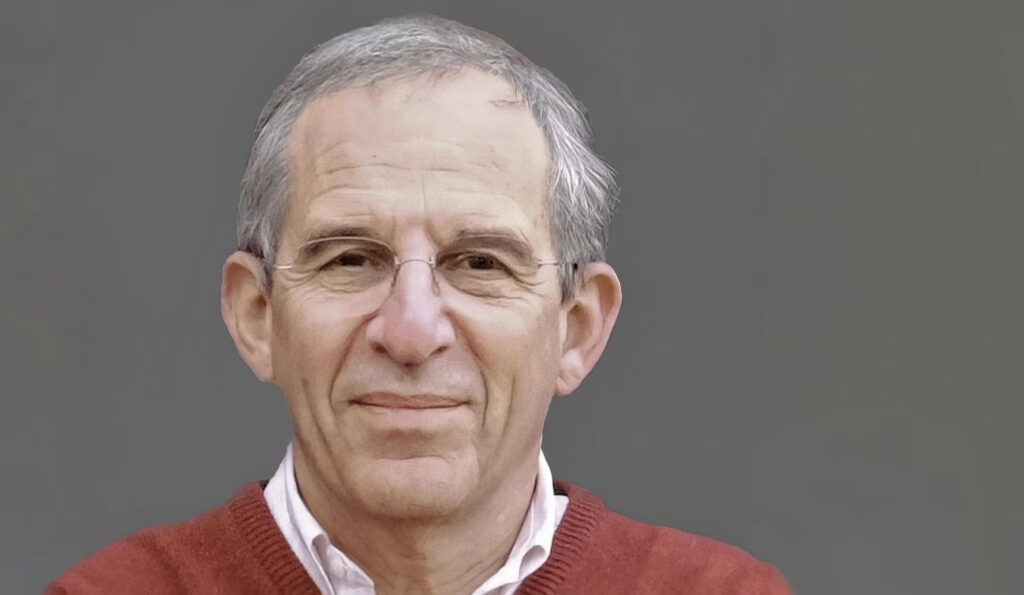Science
Michel Devoret Reflects on Nobel Win and Quantum Physics Journey

Michel Devoret, a prominent physicist and professor emeritus at Yale University, received the prestigious Nobel Prize in Physics on September 30, 2023. Devoret, along with colleagues John Clarke and John Martinis, was recognized for their pioneering work in demonstrating that quantum phenomena could be observed in matter at a larger scale. The announcement came as a surprise to Devoret, who initially thought the influx of messages on his devices was a joke.
Currently based at the University of California, Santa Barbara, Devoret also holds the position of chief scientist for quantum hardware at the Quantum Artificial Intelligence Lab. In an interview following the award announcement, he expressed his gratitude and emphasized the significance of the recognition not only for his work but for the entire field of quantum physics.
Career Reflections and Contributions
Devoret noted that the media attention surrounding the Nobel Prize was overwhelming, stating, “My profession is not rock star, it’s physicist.” He highlighted the award as a celebration of the collective efforts of countless researchers who have contributed to the development of quantum physics.
His colleagues at Yale echoed this sentiment. Rob Schoelkopf, a professor of applied physics, remarked on their collaborative spirit, saying, “We both really enjoyed discussing physics and creating new ideas together.” Steven Girvin, a professor of physics, described Devoret as having a clear direction in his research, noting his ability to identify fruitful paths.
Devoret expressed his honor in sharing the award with Clarke and Martinis, stating, “I am also very pleased to receive it with two other colleagues that I hold in great, great esteem. It’s very nice to be in the company of those exceptional individuals.”
From Curiosity to Discovery
Devoret’s fascination with science began early in his life in France. He described himself as a “nerd” during his childhood, taking a keen interest in electronics, electrical circuits, and computers. His formative experiences included building rockets in high school, which he credits as foundational to his research approach. “When we were making the rockets, we were rediscovering things that are well known in hydrodynamics and the chemistry of combustion,” he explained.
Initially contemplating a career in biochemistry, Devoret found the tangible nature of physics more engaging. He pursued an undergraduate degree in electrical engineering from the École nationale supérieure des télécommunications, and later continued his studies at the University d’Orsay. He noted the French education system emphasized applied degrees, ensuring students could find employment even without advanced degrees.
After 25 years in a French government lab, Devoret moved to the United States, first joining Yale University in 2002. His transition has led to significant advancements in quantum sensing, where he continues to explore new analysis techniques at the University of California, Santa Barbara.
Lessons Learned Over a Lifetime
Throughout his career, Devoret has distilled valuable lessons that have shaped his approach to research and collaboration. He believes that teamwork is essential in academia, a principle he first appreciated during his time as a summer camp counselor. He advises graduate students to learn from both their own mistakes and those of others to avoid repeating them.
Devoret places great importance on attention to detail, emphasizing the need for neat presentations and accurately labeled graphs. He believes such precision conveys professionalism and enhances the credibility of scientific work. His research philosophy advocates for a problem-centric approach, stating, “Research should not be like a hammer in search of a nail,” but should instead begin with a specific challenge.
As he looks to the future of quantum technology, Devoret acknowledges the unpredictability of technological advancements. “Technology forecasting is even harder than forecasting the weather,” he remarked. Despite the challenges, he is optimistic about the future of quantum technology, reflecting, “This field that we started has interested a lot of people. They have made fantastic contributions.”
Devoret’s journey from a curious child in France to a Nobel laureate exemplifies a lifelong commitment to advancing the boundaries of physics. His work continues to inspire future generations in the ever-evolving landscape of quantum mechanics.
-

 Science2 weeks ago
Science2 weeks agoNostradamus’ 2026 Predictions: Star Death and Dark Events Loom
-

 Technology1 month ago
Technology1 month agoOpenAI to Implement Age Verification for ChatGPT by December 2025
-

 Technology6 months ago
Technology6 months agoDiscover the Top 10 Calorie Counting Apps of 2025
-

 Health4 months ago
Health4 months agoBella Hadid Shares Health Update After Treatment for Lyme Disease
-

 Health4 months ago
Health4 months agoAnalysts Project Stronger Growth for Apple’s iPhone 17 Lineup
-

 Health4 months ago
Health4 months agoErin Bates Shares Recovery Update Following Sepsis Complications
-

 Technology4 months ago
Technology4 months agoElectric Moto Influencer Surronster Arrested in Tijuana
-

 Technology5 months ago
Technology5 months agoDiscover How to Reverse Image Search Using ChatGPT Effortlessly
-

 Technology6 months ago
Technology6 months agoMeta Initiates $60B AI Data Center Expansion, Starting in Ohio
-

 Technology6 months ago
Technology6 months agoRecovering a Suspended TikTok Account: A Step-by-Step Guide
-

 Education4 months ago
Education4 months agoHarvard Secures Court Victory Over Federal Funding Cuts
-

 Technology2 months ago
Technology2 months agoDiscover 2025’s Top GPUs for Exceptional 4K Gaming Performance




















